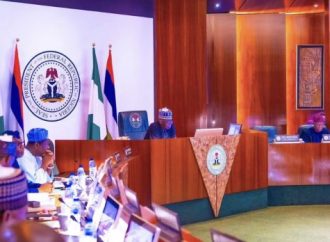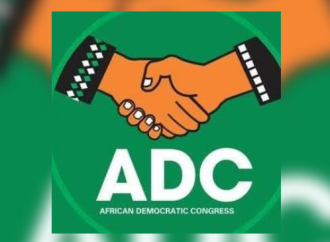Amaechi And Imoke At The Center Of 2027 Coalition’s Strategic Future In a bold stride towards redefining Nigeria’s political landscape ahead of the 2027 general elections, former Governors Rotimi Amaechi of Rivers State and Liyel Imoke of Cross River State have been entrusted with a pivotal decision — whether to establish a new political party
Amaechi And Imoke At The Center Of 2027 Coalition’s Strategic Future
In a bold stride towards redefining Nigeria’s political landscape ahead of the 2027 general elections, former Governors Rotimi Amaechi of Rivers State and Liyel Imoke of Cross River State have been entrusted with a pivotal decision — whether to establish a new political party or integrate into an existing platform for the opposition coalition. This significant development was revealed by Umar Ardo, the Convener of the League of Northern Democrats (LND), during a press briefing following an expansive meeting in Abuja.
The meeting, which brought together several key northern political figures including former Kano Governor Ibrahim Shekarau, concluded with the LND’s formal decision to align with the evolving National Opposition Coalition Group. This coalition is being spearheaded by influential opposition stalwarts such as former Vice President Atiku Abubakar and ex-Kaduna State Governor Nasir El-Rufai.
Queen Omolara Haastrup Pledges Women’s Empowerment In Ijesaland
According to Ardo, the coalition has formed two critical committees: one led by Imoke to explore the feasibility of merging with an existing party, and another chaired by Amaechi to consider the creation of a new political entity. Ardo himself serves as the secretary for the committee evaluating the formation of a new party.
“This strategic dialogue is about positioning the opposition for a successful political transition in 2027. We need a robust platform that reflects the aspirations of all Nigerians,” Ardo emphasized, underscoring the urgency and importance of the decision at hand.
Evaluating Political Options Ahead of May 30 Decision
The committees have reportedly completed their preliminary evaluations, and their findings are set to guide a final decision by May 30. The opposition bloc is contemplating platforms such as the Action Democratic Party (ADP) and the Social Democratic Party (SDP) as potential vessels should the coalition opt against registering a new party.
Notably, El-Rufai has advocated for consideration of the SDP, presenting it as a viable alternative should consensus favor integration over innovation. This move is indicative of the broad consultations and inclusive approach the coalition is employing to ensure political cohesion and strategic alignment.
“We are not just seeking political power; we are striving for a platform that can effectively address national issues and represent a unified front,” Ardo noted, highlighting the pragmatic nature of the deliberations.
Mobilizing the North and Addressing Regional Challenges
In addition to its national ambitions, the LND is particularly focused on revitalizing the North, which Ardo describes as being mired in poverty, insecurity, and administrative inertia. The coalition plans to actively engage the 19 northern governors, whom they accuse of exacerbating regional woes through inaction and poor governance.
This engagement will involve mobilizing public opinion and legislative advocacy aimed at compelling state governments and federal lawmakers to prioritize constitutional mandates and governance reforms.
“We believe that meaningful change must start with holding our leaders accountable. This coalition is not just about elections; it’s about genuine transformation,” Ardo asserted.
As the May 30 deadline approaches, the political atmosphere is charged with anticipation. The decision by the opposition coalition—whether to chart a new course with a freshly minted party or to coalesce under an existing banner—could redefine the contours of Nigerian politics and set the stage for a heated contest in 2027.
With Amaechi at the helm of the initiative for a new party and Imoke exploring existing structures, the opposition’s strategy reflects a dual approach that balances innovation with practicality. The outcome of these deliberations will not only influence electoral strategies but also potentially reshape political affiliations and power dynamics across the country.

















Leave a Comment
Your email address will not be published. Required fields are marked with *